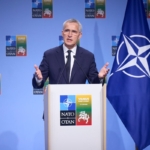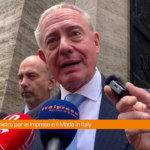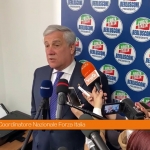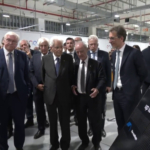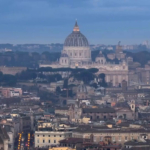The General Congress of the Workers’ Party of North Korea, which began last Friday, 36 years after the previous one, continues as planned, further strengthening the power of the president Kim Jong-Un, who succeeded his father Kim Jong-Il in 2011.
Sunday May 8, state television broadcasted a long speech in which supreme leader, in front of 3400 delegates came from every corner of the country, has announced a new five-year plan to restore momentum to the ailing national economy. Despite the emphasis with it was presented, the new plan does not foresee major changes neither politically nor economically.
In fact, the North Korean president was stingy with details, referring vaguely to the need for greater automation of industry and agriculture and an increase in coal production over the next five years. Most of the discussion has focused on the celebration of the efforts and the progress made by the country over the past 36 years, with frequent references to the ideology of Juche, centered on the concepts of autonomy and self-sufficiency. At the same time, the leaders called for an increase in foreign trade, showing little consideration for the tightening of economic sanctions wanted by the UN after nuclear tests conducted last January.
In a country that, despite everything, is growing by about one percentage point of GDP every year, Jong-Un stressed the need to find new energy resources that can generate enough electricity to support the development, in a country still struggling with frequent blackouts, which also affect the capital Pjongyang. To this end, the DPRK intends to focus on nuclear energy and renewable energy sources.
The President also referred to nuclear arsenal, on whose development more of the regime’s efforts are focusing. In a statement by the soothing flavor, Kim has ensured that North Korea does not intend to resort to atomic weapons, “unless its sovereignty is encroached upon by any aggressive hostile forces with nukes.”.
An unusually diplomatic approach has also featured references to South Korea, with which the regime would like to return to dialogue to lower the level of tension. An offer harshly rejected, in close halfway point, by the Minister for the Unification of the South: “It speaks of inter-Korean dialogue while continuing to develop a nuclear arsenal,” he said, branding statements by Kim Jong-Un as mere propaganda.
The next day, as if to confirm the mistrust of South Korean, the Workers’ Party has decided formally, during the Congress, to further strengthen the nuclear arsenal of the country “for the purpose of self-defense”, again defying the UN and the his system of sanctions.
Although there is not yet a official closing date, the Congress should continue for a few days. Foreign media were invited to attend the historic event, but, until now, journalists have not been able to pass through the doors of the great Palace of Culture, whose parterre covers an area equal to two football fields. The reporters took part in guided tours, under the watchful gaze of party officials but, in fact, have not yet been able to perform the job for which they were accredited.
The climate for the press, actually, is not easy. Last Friday the members of a BBC team, sent to cover the Congress, were placed under arrest and later expelled. As reported by the Chinese press agency, the British were expelled for ” attacking the DPRK system and non-objective reporting.”
While the foreign press has to deal with the North Korean idea of objectivity, the supreme leader of the country further strengthens its power. Monday, in fact, delegates awarded Kim Jong-Un of a new title: President of the Workers Party, a position he joins that of first secretary.
Luca Marchesini

